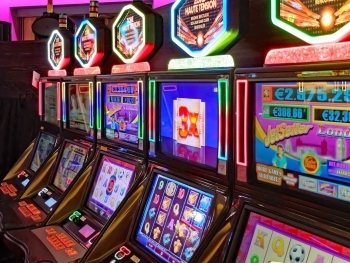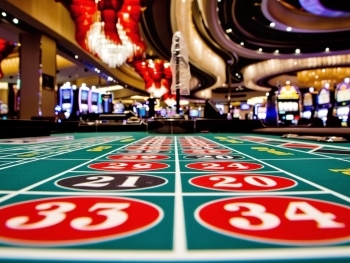Poker has evolved significantly over the years, transitioning from traditional live games in casinos and home settings to the fast-paced world of online poker. Each format offers unique advantages and challenges, making the choice between online and live poker an important one for every player. Whether you're a beginner looking to start playing or an experienced player looking to switch formats, understanding the differences can help you decide which suits you best.
1. Convenience and Accessibility
Online Poker:
- Available 24/7 from anywhere with an internet connection.
- No need to travel to a physical casino.
- Allows for multi-tabling, enabling players to play multiple games at once.
- Ideal for players with limited time who want to play at their convenience.
Live Poker:
- Requires traveling to a casino or a poker club.
- Games are not available at all times; players must adhere to casino schedules.
- No option for multi-tabling; players can only focus on one game at a time.
- Provides a social and immersive poker experience.
2. Speed of Play
Online Poker:
- Hands are dealt and played at a much faster pace.
- No need for physical dealers or players to shuffle cards.
- Automatic betting and decision timers speed up the game.
- Players can play hundreds of hands per hour, which is excellent for learning and improving.
Live Poker:
- The game pace is significantly slower due to manual dealing and players taking longer to make decisions.
- Fewer hands per hour compared to online poker.
- More opportunities to engage in table talk and observe opponents.
3. Player Skill Level and Competition
Online Poker:
- Typically features tougher competition, as many online players are more experienced.
- Large player pools mean facing a variety of playing styles and skill levels.
- More reliance on mathematical strategies and quick decision-making.
Live Poker:
- Generally features softer competition, with many recreational players.
- More reliance on physical tells and reading opponents rather than mathematical strategies.
- Easier for experienced players to exploit beginner mistakes.
4. Game Selection and Stakes
Online Poker:
- Offers a wide range of stakes, from micro-stakes to high-roller games.
- Access to various poker formats, including Texas Hold'em, Omaha, and tournament play.
- Satellite tournaments provide opportunities to enter major live events at a lower cost.
Live Poker:
- Limited stake options compared to online games.
- Fewer variations available, with most casinos focusing on Texas Hold'em.
- Higher minimum stakes due to casino overhead costs.
5. Psychological and Social Aspects
Online Poker:
- No face-to-face interaction, which eliminates physical tells.
- Chat features allow some level of interaction, but the experience is less social.
- Requires strong discipline to avoid distractions from multi-tabling and online distractions.
Live Poker:
- Engages players in a social atmosphere with table talk and physical tells.
- Body language and facial expressions can provide insights into opponents' hands.
- Players must manage emotions and maintain a poker face.
6. Use of Poker Tools and Aids
Online Poker:
- Players can use tracking software and HUDs (heads-up displays) to analyze their play and track opponents.
- Poker solvers and strategy tools are readily available for study.
- Quick access to statistics and hand history allows for strategic improvements.
Live Poker:
- No software tools available; players must rely on memory and intuition.
- Requires stronger observational skills and mental calculations.
- More emphasis on live game psychology and table dynamics.
7. Profitability and Rake Differences
Online Poker:
- Rake (the casino's commission) is typically lower than in live poker.
- More hands per hour increase the potential for higher earnings.
- Higher variance due to fast-paced action and tough competition.
Live Poker:
- Higher rake, as casinos have overhead costs.
- Slower pace means fewer hands per hour, leading to lower hourly earnings potential.
- More opportunities to exploit recreational players and make steady profits.
8. Bankroll Management
Online Poker:
- Requires a larger bankroll due to higher variance and fast-paced play.
- More hands played means swings can happen quickly.
- Lower minimum buy-ins make it easier to start with a smaller bankroll.
Live Poker:
- Less variance, meaning swings are more manageable.
- Higher minimum stakes require a larger initial bankroll to play comfortably.
- More control over losses due to a slower pace of play.
Choosing between online poker and live poker depends on your preferences, skill level, and goals. If you value convenience, fast-paced action, and advanced strategy, online poker may be the best fit. If you enjoy social interaction, reading opponents, and a more immersive experience, live poker might be your ideal choice.
Ultimately, many successful players participate in both formats, taking advantage of the benefits each offers. Whether you play online, live, or a mix of both, understanding the differences can help you make the most of your poker journey.












